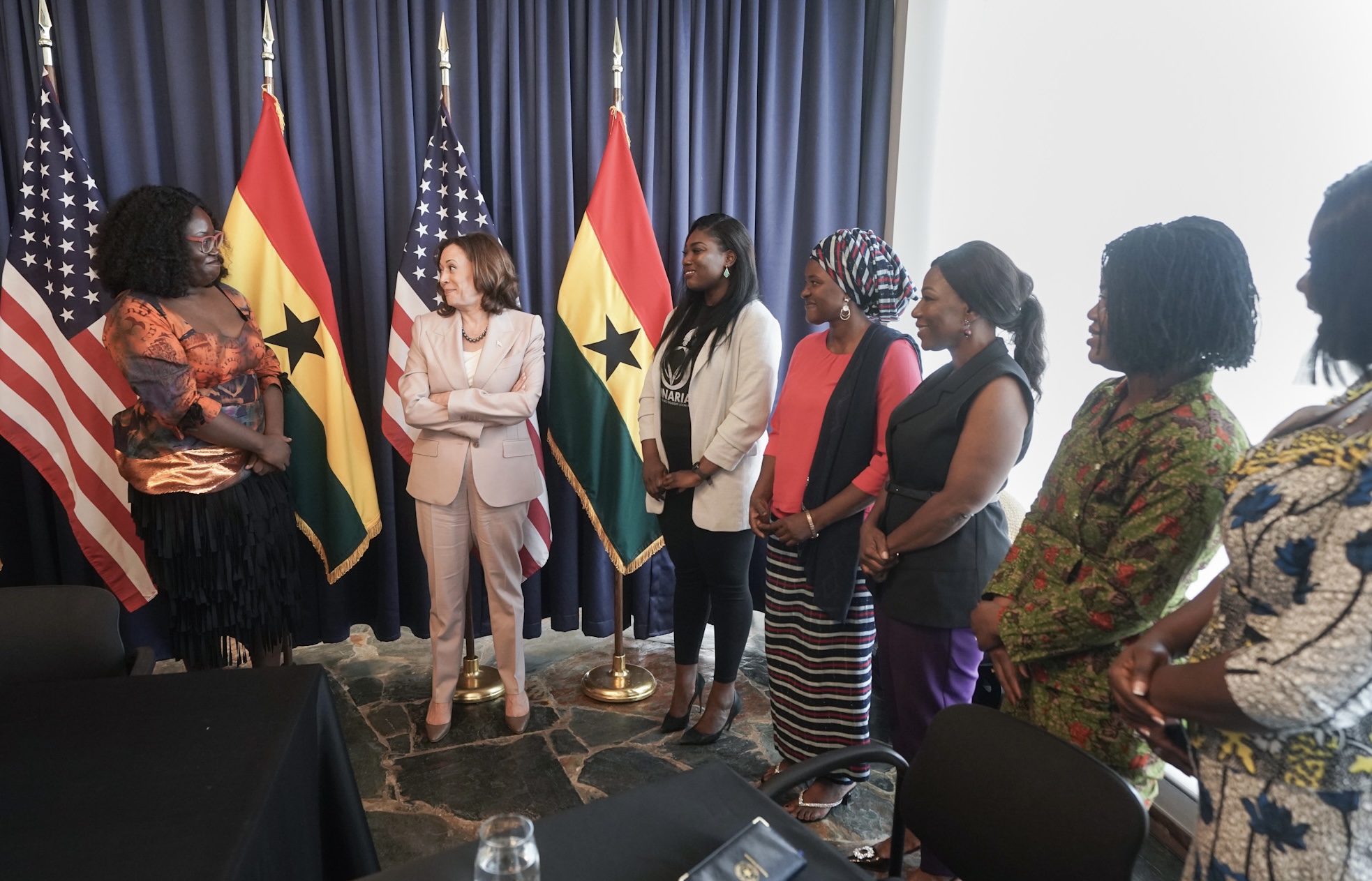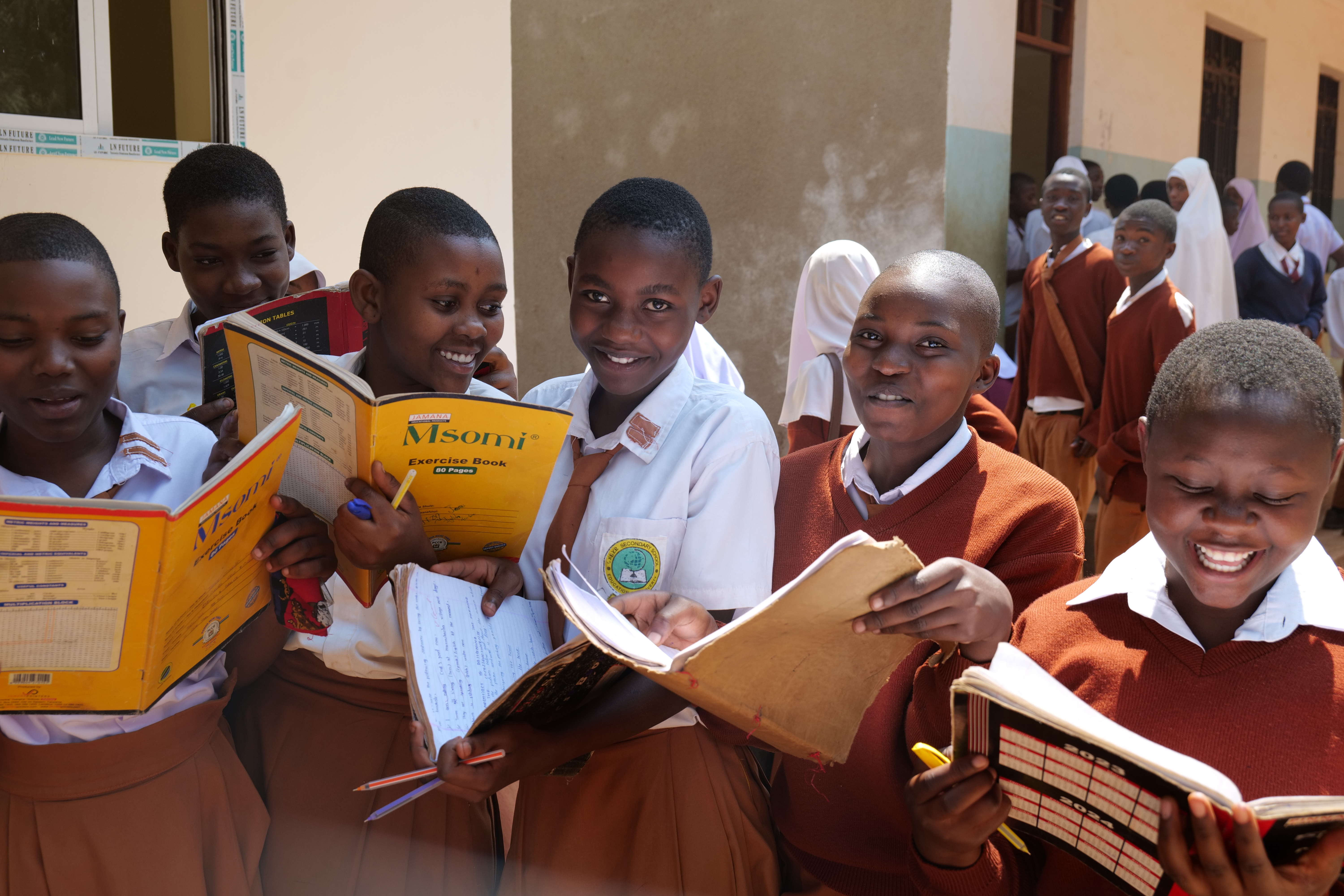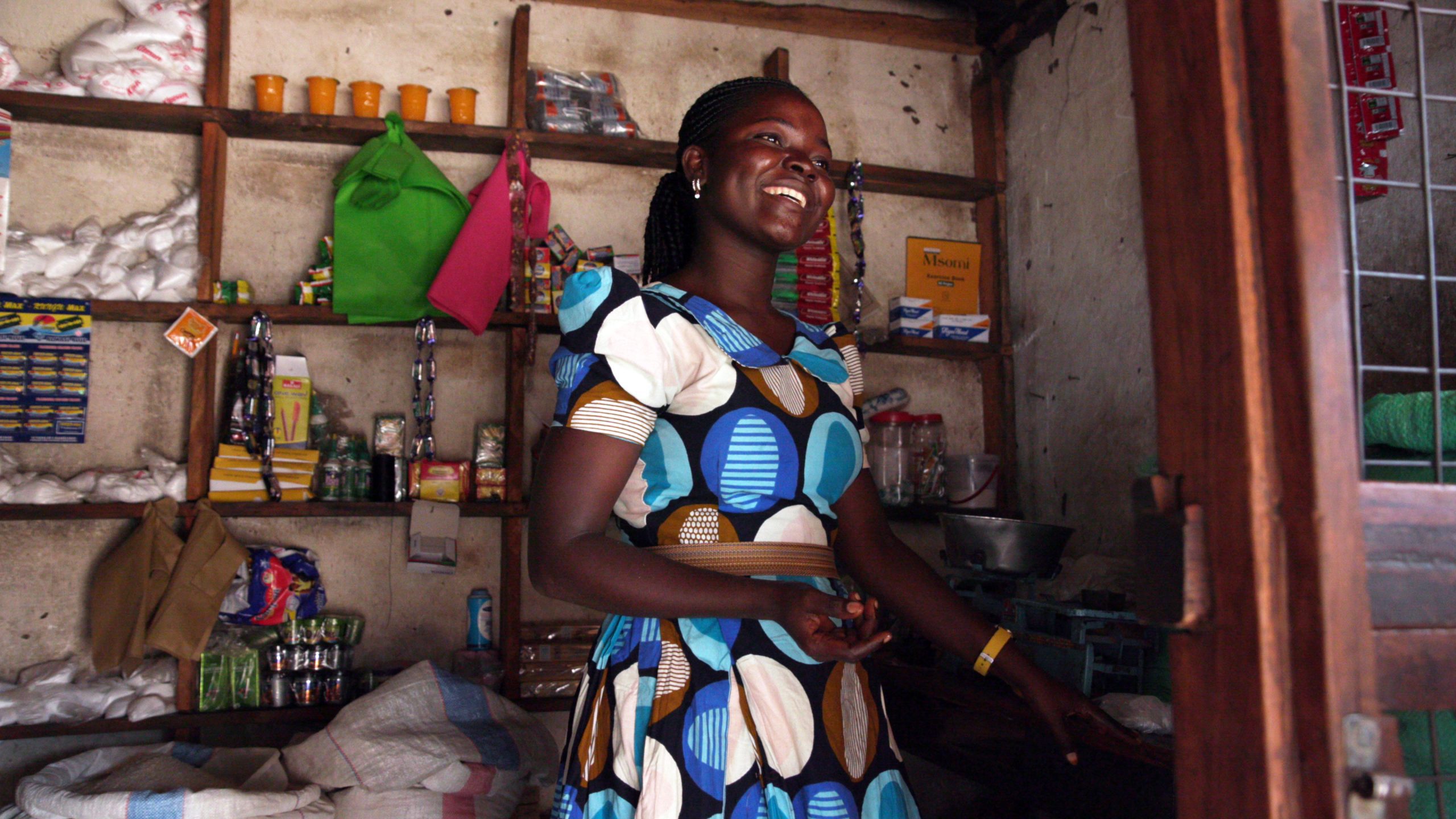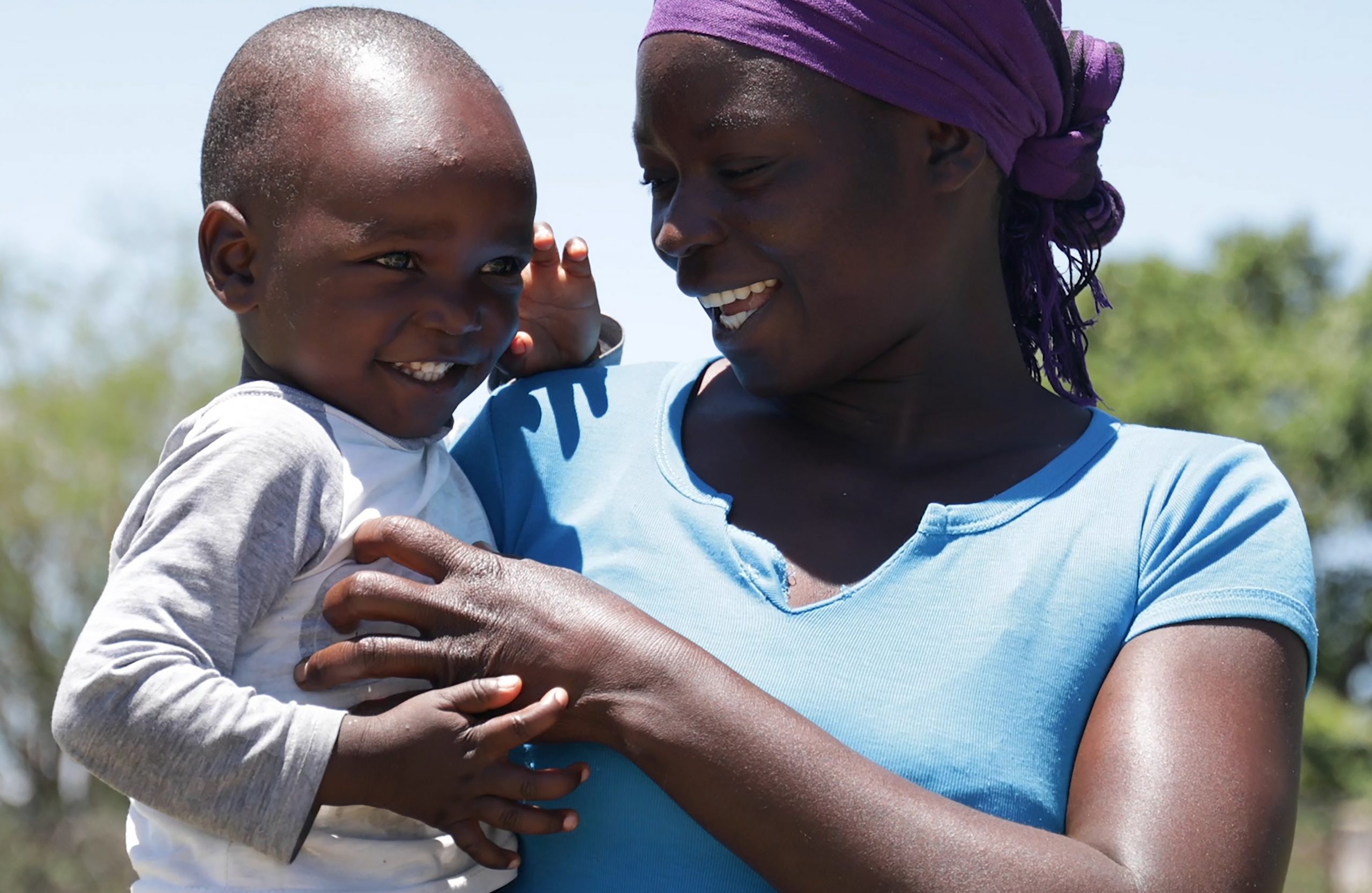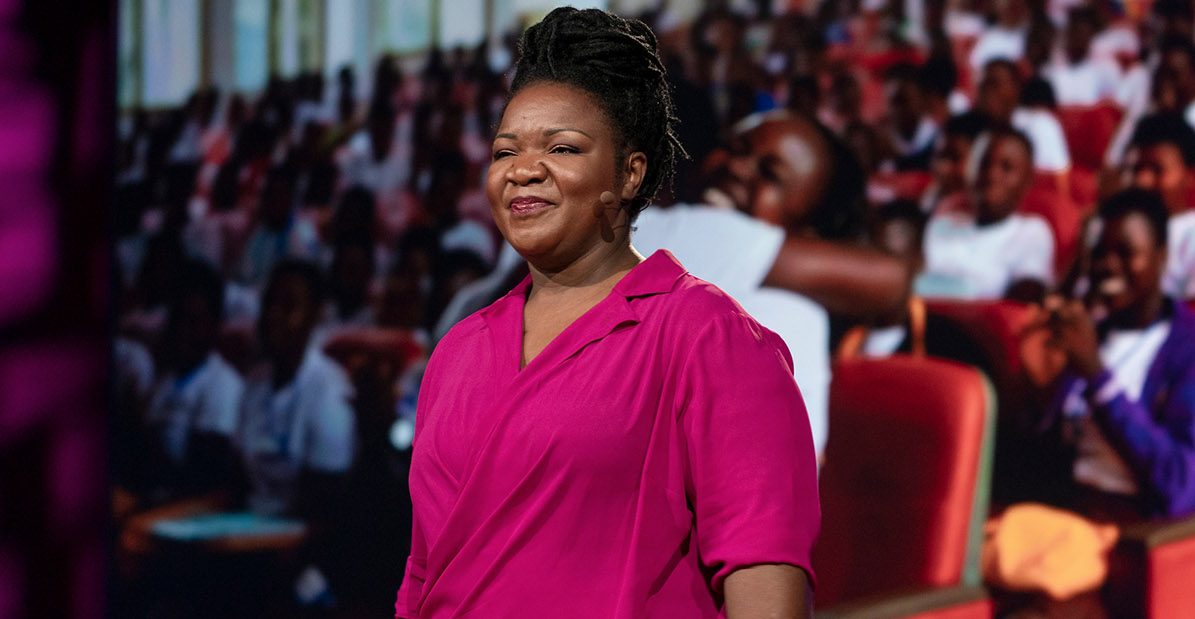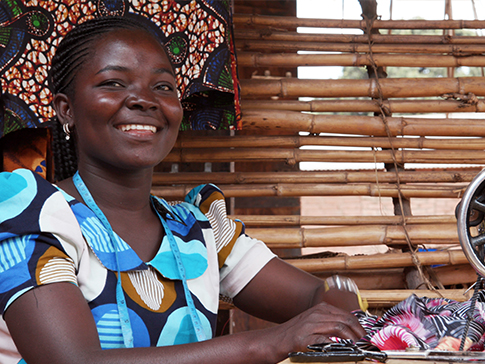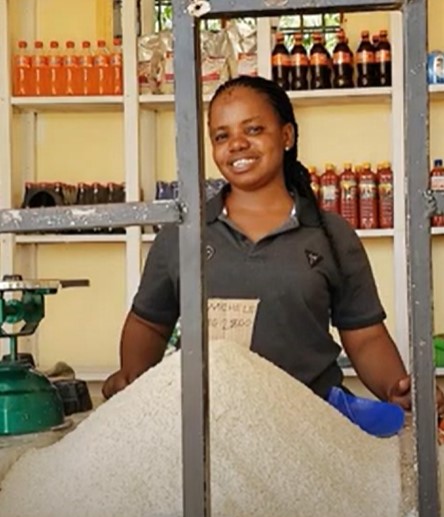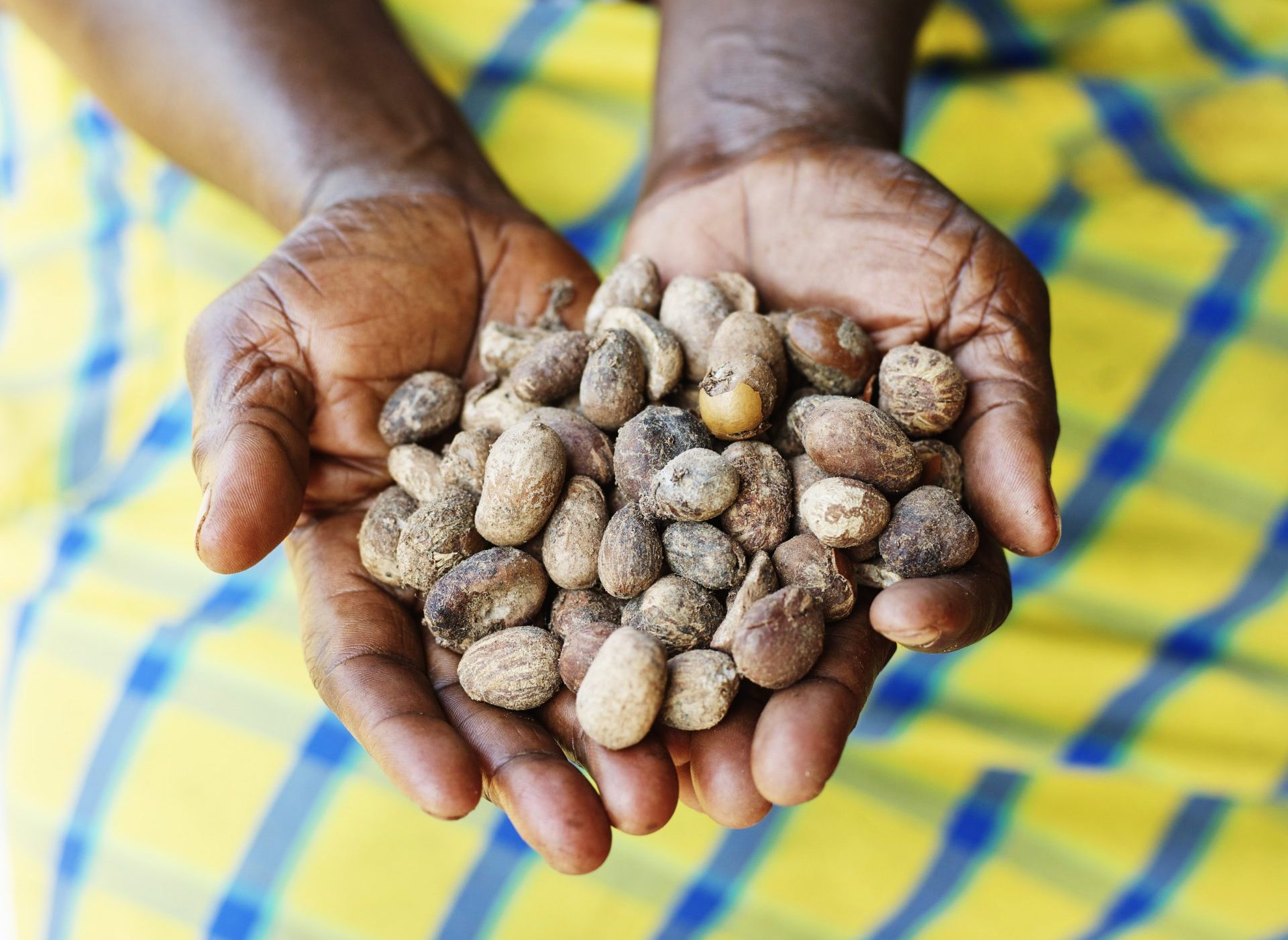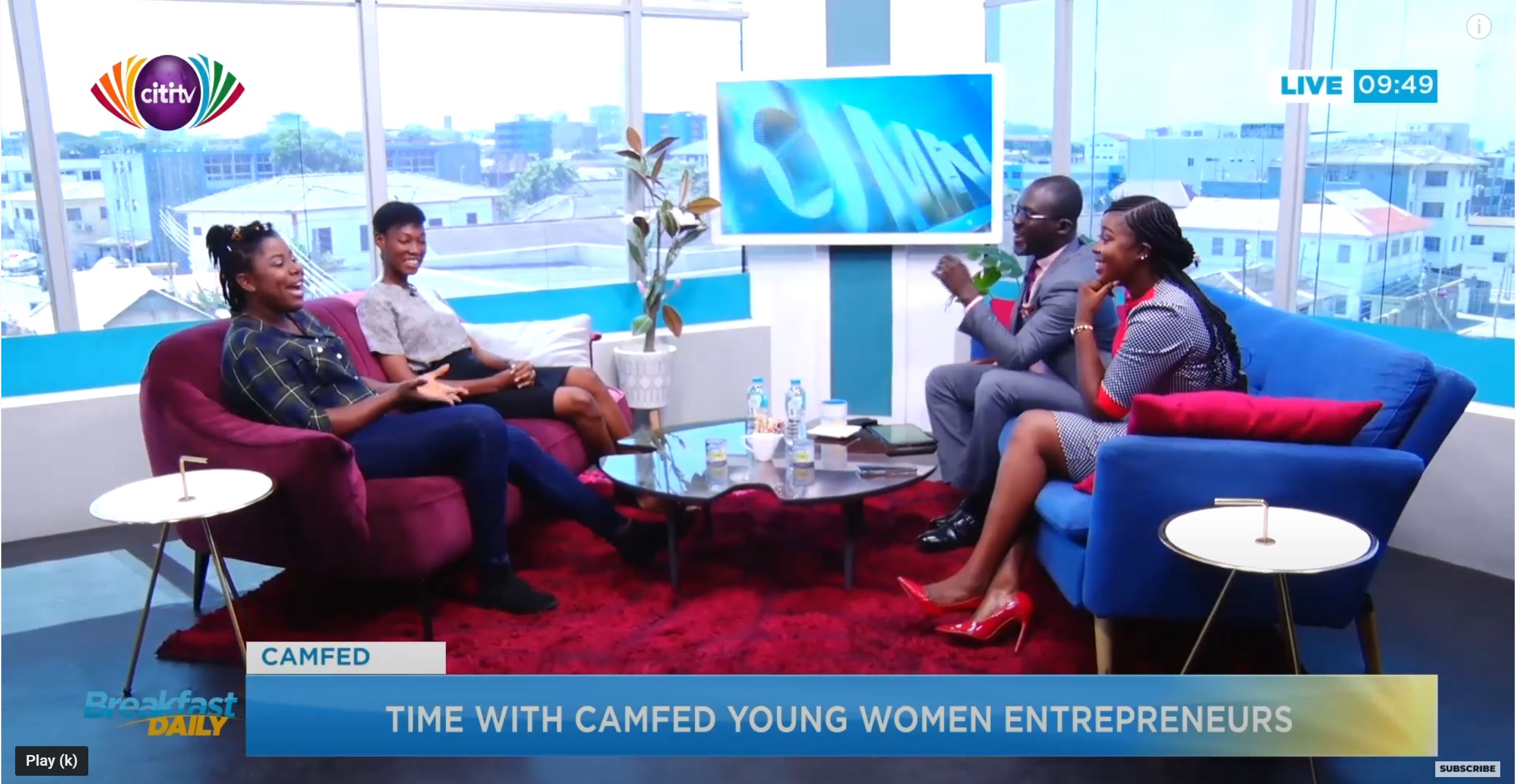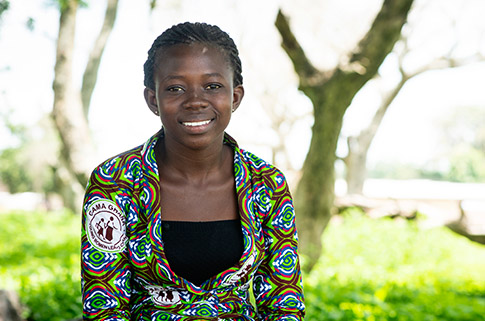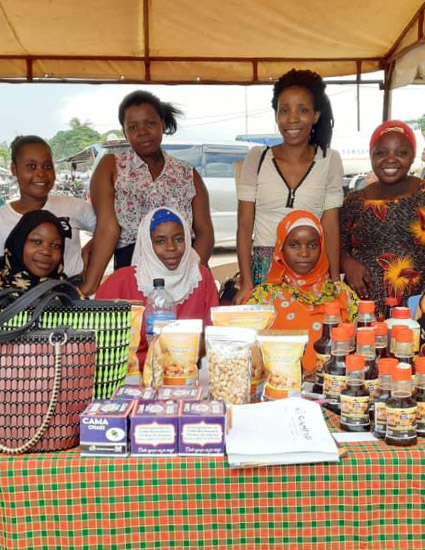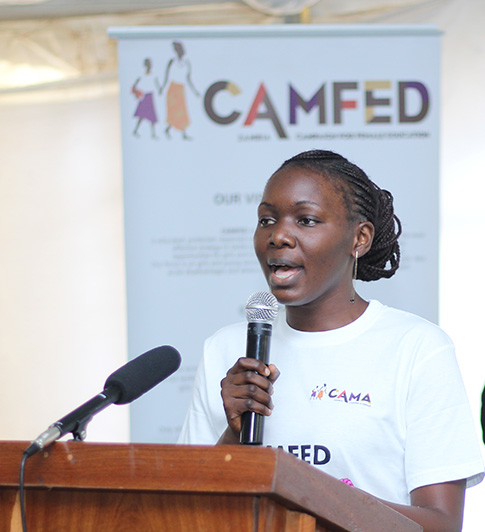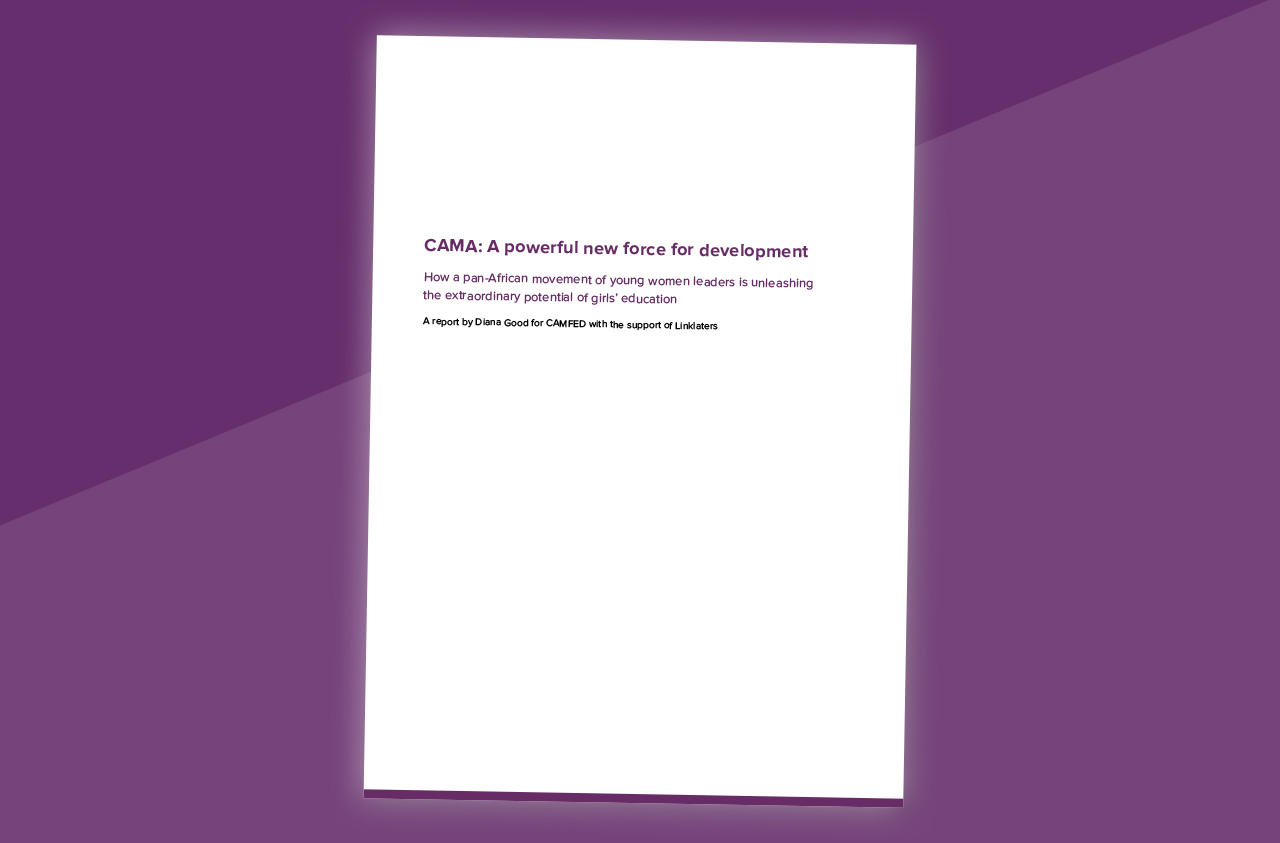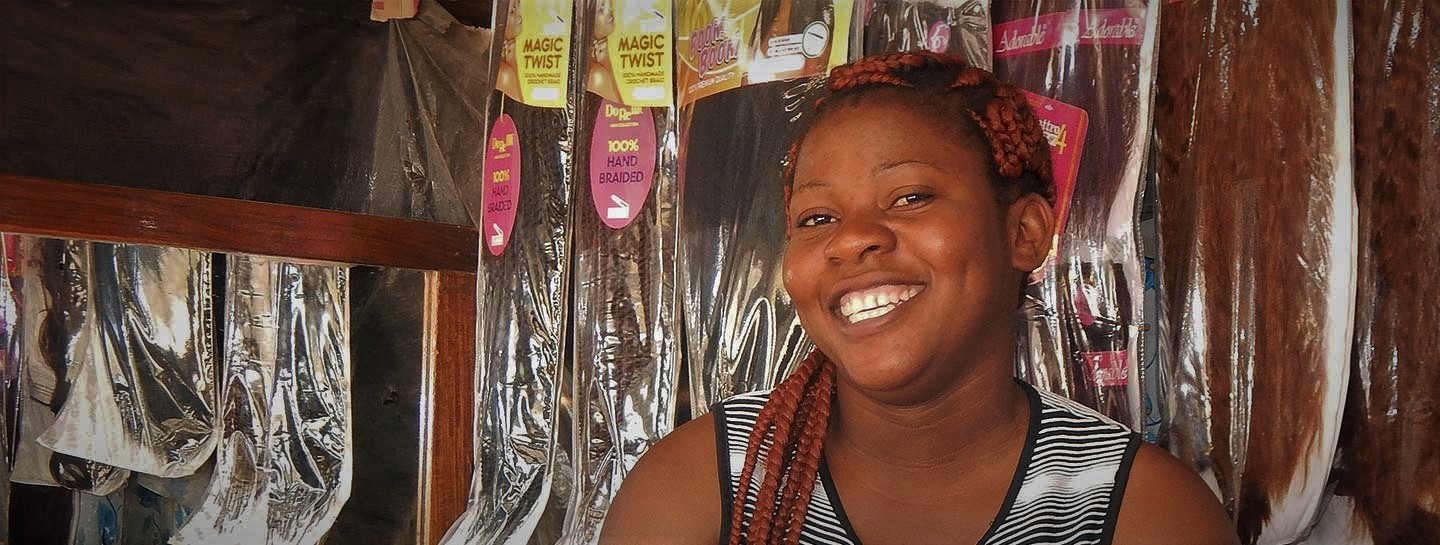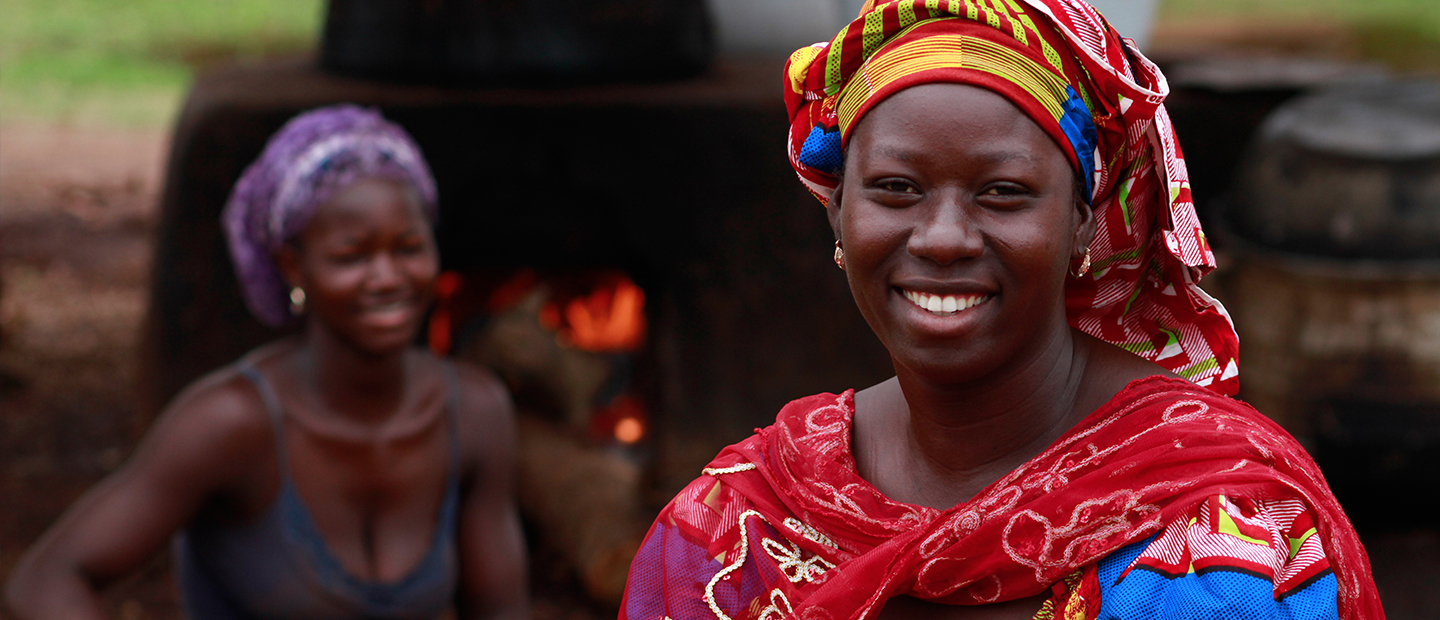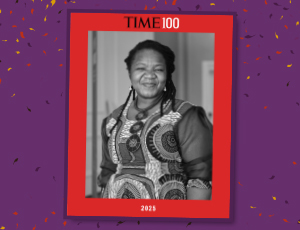CAMFED supports girls beyond the school gates to become independent, influential women.
Through the CAMFED Association — our peer support and leadership network — we equip young women with financial literacy and business training, grants, mentoring and support.
Business Guides
Young women experienced in business, and in navigating the challenges and barriers imposed by gender and economic disadvantage in their communities, are trained as Business Guides, delivering a structured program of support to their peers.
Linkages to business support services
CAMFED also establishes linkages to business development services through our partnerships with local government, traditional authorities, private industry and financial service providers. These partners, in turn, can provide additional technical support, advice, and new opportunities for women to start and grow businesses. This multifaceted support is vital in a context where women are often expected to provide unpaid agricultural labor.
Learning from the young women we serve
Through surveys, research, and learning opportunities we listen and learn from CAMFED Association members running businesses, so that we can collectively support women to overcome the hurdles they face.
Flexibility in a crisis
The global pandemic further laid bare the need to respond flexibly to women’s needs — to address issues relating to loan repayments which can arise through health, economic, or climate crises; and to fortify young women’s livelihoods to withstand the longer term impacts of a crisis. This includes support to diversify businesses to meet local demand for goods and services, including basic sanitation supplies, and to pivot businesses to the agricultural sector and food production to tackle looming food insecurity.
